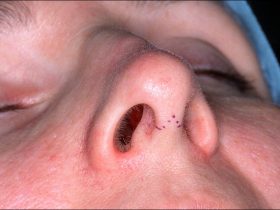We’re all guilty of pulling a few all-nighters or lacking sleep during workdays, promising ourselves that we would make up for it over the weekend. It’s come to a point where having seven hours of sleep feels like a luxury not everyone can have. However, it’s high time you do start making the time for getting extra sleep.
Numerous studies show the importance of sleep, but have you heard about how sleep can play a role in nutrient absorption as well? Sure, you can make up for a poor diet or nutrient deficiency with supplements like Integrative Therapeutics at Supplement First. But without sleep, it may not be as effective as you think.
Let’s take a closer look at how sleep and nutrient absorption can be connected.
How Sleep and Nutrient Absorption are Connected
During the annual meeting of the American Society for Nutrition, a new report was presented, which found a potential link between nutrition and quality of sleep.
In this report, scientists found that those who get less than seven hours of sleep may get fewer vitamins A, B1, B3, and D. Moreover, they are likely to get less calcium, zinc, phosphorous, and magnesium. The association was seen as more common in women than men.
With that said, further studies are required to determine if short sleep causes nutrient deficiency and vice versa.
But what we do know is that numerous studies suggest that lack of sleep can have people crave less healthy foods that are higher in fat or sugar. This has us consume more dishes lacking in nutrients over nutrient-dense meals containing the vitamins and minerals we need.
Moreover, another study suggests that our nutrient intake, or lack thereof, may be linked to poor sleep quality and sleep disorders. As you can see, both sleep and nutrient intake work hand in hand.
What to Do for a Healthier Mind and Body
Now that you know how nutrient intake and sleep are connected, how can you improve your health?
It starts by taking the steps to get adequate sleep. The average person requires 7-9 hours of sleep per night. While your schedule may affect how many hours you can sleep, you must prioritize taking 7-9 hours out of your daily schedule dedicated to sleep. More importantly, you need to ensure that you create an environment conducive to sleeping. This means stopping using any devices 2 hours before sleeping, as well as sleeping in a dark, comfortable room that can help you sleep quicker.
Moreover, you will also need to change up your diet as necessary to get all the nutrients you need daily. You may also require supplementation from brands like Pure Encapsulations at Supplement First, but make sure you check with your doctor for any dietary changes.
Wrapping It Up
Make sure you speak with your doctor about your diet and what you can do to improve both your nutrient intake and sleep!














